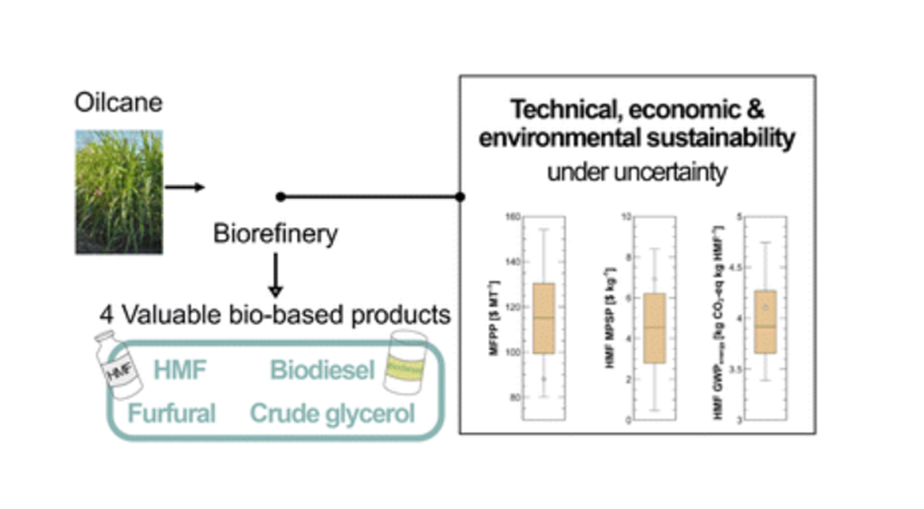Economic and Environmental Sustainability of Bio-Based HMF Production and Recovery from Lignocellulosic Biomass
Themes: Conversion, Sustainability
Keywords: Bioproducts, Modeling
Citation
Jia, Y., Maitra, S., Kudli, L.P., Guest, J.S., Singh, V. Oct. 21, 2024. Data from: “Economic and Environmental Sustainability of Bio-Based HMF Production and Recovery from Lignocellulosic Biomass.” GitHub Repository.
Overview

5-Hydroxymethyl furfurals (HMF) is one of the versatile platform chemicals. However, green routes to produce it directly from lignocellulosic biomass are lacking. A significant amount of HMF produced during the hydrothermal valorization of lignocellulosic biomass is considered undesired and ends up in a waste stream. The study transformed the undesired byproduct into a valuable coproduct by advancing the existing biofuel production process. A detailed economic and environmental sustainability analysis of the integrated biorefinery design was performed. The evaluation showed that the biorefinery could afford a maximum feedstock purchasing price of $115.17 per MT and produce HMF with a minimum selling price of $4.54 per kg which is ∼75% lower than the commercial price of HMF. The median global warming potential of HMF was estimated to be 3.92 kg CO2-eq. per kg HMF which was ∼32% less than its counterpart bio-based p-xylene. Diverse coproducts produced in the biorefinery using transgenic feedstock positively impacted sustainability.
Data
GitHub – Includes model code, uncertainty analysis functions, unit functions
GitHub – Includes biorefinery results